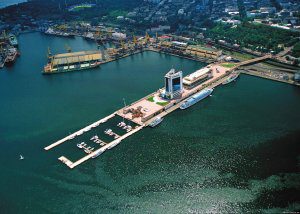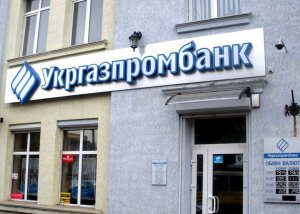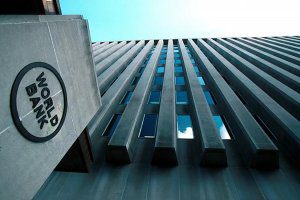
KYIV. Aug 12 (Interfax-Ukraine) – The council of Odesa seaport has approved the project of creating a compact grain complex with a capacity of 70,000 tonnes in the rear of the seventh pier, which will be able to accept grain from railway rolling stock and ship it on board vessels.
According to the press service of the Infrastructure Ministry of Ukraine, the terminal is designed using modern technology and port transshipment equipment made in the United States.
“A distinctive feature of the complex from those existing in the port will be using modern transport networks and storage facilities for grain handling and storage, dust suppression technology that involves the use of deodorized and refined edible oil for dust binding,” reads a statement.
According to ministry experts, the launch of the grain terminal will provide job creation and investment in the port sector of business in Odesa, as well as stable contributions to the city budget.

KYIV. Aug 12 (Interfax-Ukraine) – The expenditure of businesses for administration of work books by accountants and personnel department specialists, according to preliminary estimates, will be reduced by about UAH 300 million per year and the reduction of costs for archivists will reach about UAH 200 million a year, according to EasyBusiness co-founder Mykola Haidai.
According to him, the overall economic effect should manifest within the first year after the abolition of work books.
In addition, Haidai noted that alternative mechanisms for verification of seniority existed in Ukraine since 2000.
“Starting from 2000 the unified state register of insured persons contains information about deductions from wages to the Pension Fund, according to which it is possible to trace the seniority of the employee. Those who want to draw a pension for the period up to 2000, it is necessary to submit documents to the Pension Fund, indicating deductions from wages for the period required. Thus, the process of pension registration for seniority, acquired before 2000, remains unchanged,” the expert said.
In addition, he said these mechanisms are already available in the territory of the entire Ukraine, in particular in rural and remote areas.

KYIV. Aug 12 (Interfax-Ukraine) – The Ministry of Agricultural Policy and Food expects the corn yield at 26.5 million tonnes and notes that heat won’t affect the overall gross yield of this crop.
“Every year during the harvesting campaign we observe peak temperature regimes in those regions where there was not the sufficient amount of moisture…but it is not critical,” the director of the agriculture and technology policy department in the agroindustrial sector, Volodymyr Topchiy, told Interfax-Ukraine.
According to the ministry, the harvest of this crop is expected to reach 25.6 million tonnes.
The head of the agrometeorological department at the Hydrometeorological Center, Tetiana Adamenko, said heat will last for the whole next week, but it is premature to talk about changes in the numbers of the gross maize harvest.
As reported, with reference to data from the State Statistics Service, Ukraine in 2015 reduced the area under maize by 11.8%, to 4.1 million hectares.

KYIV. Aug 12 (Interfax-Ukraine) – Trading company Primestar Energy FZE (the UAE) has acquired a 100% stake in Ukraine’s insolvent Ukrgazprombank, the Individuals’ Deposit Guarantee Fund, the seller of the bank, has reported.
A purchase and sale agreement was signed on August 7 after an open tender among potential investors held on July 30. The sum of the transaction has been not disclosed at the request of the buyer, the fund told Interfax-Ukraine.
“The indicators of Ukrgazprombank’s solvency and liquidity should be restored by the new owner within 30 days. The completion of the bank capitalization should be confirmed by the results of an inspection conducted by the National Bank,” the fund said.
All investors, including legal entities and individuals, whose deposits exceed the guaranteed compensation sum of UAH 200,000, will be able to return their funds not earlier than the completion of bringing the bank’s activities in line with the requirements of Ukrainian banking legislation.
Under the terms of the deal, the fund will not spend its money on payment of guaranteed compensation. Primestar Energy will also reimburse for the fund’s expenditure for the implementation of temporary administration in the bank.
The fund appointed an authorized curator in the bank to monitor the investor’s fulfilling his obligations.
Primestar Energy FZE is engaged in trade in coal, steel, energy. The company operates in the markets of Middle East, Southeast and East Asia.
KYIV. Aug 12 (Interfax-Ukraine) – Fitch Ratings has upgraded the State Export-Import Bank of Ukraine (Ukreximbank, Kyiv) Long-term foreign currency Issuer Default Rating (IDR) to ‘CCC’ from ‘RD’ (restricted default) and senior unsecured debt rating to ‘CCC’ from ‘C’.
The upgrades follow the completion of the bank’s external debt restructuring, the rating agency said in a posting on its website.
Fitch downgraded the bank’s Viability Rating (VR) to ‘f’ from ‘ccc’ and immediately upgraded the VR back to ‘ccc’. The downgrade to ‘f’ reflects the agency’s view that the bank failed when defaulting on (restructuring) its external debt. This view is based on Fitch’s understanding that the bank probably had insufficient foreign currency liquidity to continue to service its external debt – in particular to repay its $750 million eurobond due on April 27, 2015, – and so would likely have defaulted because of weaknesses in its standalone credit profile, even if a debt restructuring had not been imposed by the Ukrainian authorities.
According to the posting, the bank has not made full information available to Fitch with respect to its foreign currency liquidity position at the time of its default. However, on the basis of available data the agency believes it is appropriate to denote the bank as having failed.
The upgrade of the VR to ‘ccc’, and Long-term foreign currency IDR and senior debt rating to ‘CCC’ reflects Fitch’s assessment of the bank’s standalone profile following its external debt restructuring. Specifically, the upgrade reflects reduced refinancing risks, as the restructuring of the bank’s eurobonds resulted in a significant lengthening of the external debt maturity profile. At the end of the first half of 2015, the bank’s foreign currency liquidity (comprising cash and equivalents and short-term interbank placements) was comfortably sufficient to meet near-term wholesale funding maturities, although stability of the bank’s highly dollarised deposit funding is also key to maintaining FX liquidity.
The bank’s VR and IDRs are also supported by (i) its reasonable liquidity in local currency, underpinned by large holdings of unpledged government securities eligible for refinancing with the NBU (32% of end-1Q15 assets); (ii) generally sticky customer funding, in part due to the presence of public sector corporates (24% of liabilities) in the deposit base; (iii) reasonable 93% reserve coverage of non-performing loans (NPLs; loans more than 90 days overdue; end-1H15: 35% of loans); and (iv) the bank’s compliance with the prudential capital requirements (end-1H15: regulatory capital ratio of 12.1% vs. minimum level of 10%).
Fitch says that however, the ratings remain constrained by the highly stressed operating environment, and resultant pressure on asset quality, performance and capital. Downside risks to asset quality remain high given large borrower concentrations, the material share of FX-lending (74% of net loans) and sizable restructured/rolled-over exposures (44% of the total), which are only modestly provisioned. Recovery prospects will depend on the performance of the domestic economy and improvements in external markets, as many of these borrowers are exporters. The bank’s asset quality remains highly correlated with the sovereign’s credit profile due to the bank’s large exposure to sovereign debt (end-1Q15: 10x Fitch Core Capital, FCC; this is all domestic debt, both FX and UAH-denominated, and so not part of the expected restructuring) and public sector more generally (4x FCC).
Loss absorption capacity is limited. At end-1H15, the bank could have increased its impairment reserves by 2% only without breaching regulatory capital requirements. The bank’s (core) Tier 1 ratio was a weak 6.8% at end-1H15, with overall regulatory solvency relying significantly on subordinated debt. Pre-impairment profit was negative in 2014-1Q15, meaning that Ukreximbank is likely to need further capital support if performance does not improve and asset quality remains under pressure.
Fitch says that the bank’s Support Rating ‘5’ and Support Rating Floor of ‘No Floor’ reflect Fitch’s view of the Ukrainian authorities’ still limited ability to provide support to the bank, in particular in foreign currency, in case of need, as indicated by the sovereign’s ‘CC’ Long-term foreign-currency IDR. However, the propensity to provide support to the bank remains high, in Fitch’s view, in particular in local currency, given the bank’s 100%-state ownership, policy role, high systemic importance, and the track record of capital support for the bank under different governments.
Ukreximbank’s subordinated debt rating has been affirmed at ‘C’, the lowest possible issue rating. The two-notch differential between the bank’s VR of ‘ccc’ and the subordinated debt rating of ‘C’ reflects one notch for incremental non-performance risk (resulting from the flexibility to defer coupons in certain circumstances, for example if the bank reports negative net income for a quarter) and one notch for potentially weaker recoveries due to the instrument’s subordination.
Fitch says that the bank’s VR, IDRs and senior debt ratings would not automatically be downgraded in case of a further sovereign downgrade/debt restructuring, as the bank’s low ratings already reflect very high levels of credit risk. However, the bank’s IDRs and debt ratings could be downgraded in case of transfer and convertibility restrictions being imposed, which would restrict its ability to service its obligations. The VR, IDRs and debt ratings could also be downgraded if the sovereign defaults on its domestic FX debt, as this may result in the acceleration of the bank’s external debt, which in Fitch’s view it would be unlikely to be able to redeem.
Fitch forecasts that the bank’s ratings are also likely to be downgraded if further deterioration in asset quality results in capital erosion, without sufficient support being provided by the authorities, or if deposit outflows sharply erode the bank’s liquidity, in particular in foreign currency. Stabilization of the sovereign’s credit profile and the country’s economic prospects would reduce downward pressure on the ratings.
The Support Rating could be upgraded and the Support Rating Floor revised upwards if Fitch markedly revises its view of the authorities’ ability to provide timely support to the bank, in particular, in foreign currency. However, this is unlikely in the near term, given the country’s weak external finances and expected sovereign external debt restructuring.
Fitch’s rating actions on Ukreximbank are as follows:
– Long-term foreign currency IDR: upgraded to ‘CCC’ from ‘RD’;
– Senior unsecured debt of Biz Finance PLC: upgraded to ‘CCC’/Recovery Rating ‘RR4’ from ‘C’/’RR4’;
– Subordinated debt: affirmed at ‘C’/’RR5’;
– Short-term foreign currency IDR: upgraded to ‘C’ from ‘RD’;
– Long-term local currency IDR: affirmed at ‘CCC’;
– Support Rating: affirmed at ‘5’;
– Support Rating Floor: affirmed at ‘No Floor’;
– Viability Rating: downgraded to ‘f’ from ‘ccc’; upgraded to ‘ccc’;
– National Long-term rating: affirmed at ‘AA-(ukr)’; Outlook Stable.

KYIV. Aug 11 (Interfax-Ukraine) – The World Bank may allocate $500 million to Ukraine for purchase and pumping gas into underground storage facilities, Ukrainian Energy and Coal Industry Minister Volodymyr Demchyshyn said at a briefing in Kyiv on Monday.
“Active negotiations are being held with the World Bank, which is talking about $500 million, and IFC, that is ready to talk about $200-250 million to buy gas by a foreign trader,” he said.
Demchyshyn also reminded that there already were some agreements with European Bank for Reconstruction and Development, according to which the financial institution might allocate $300 million for the same goals.